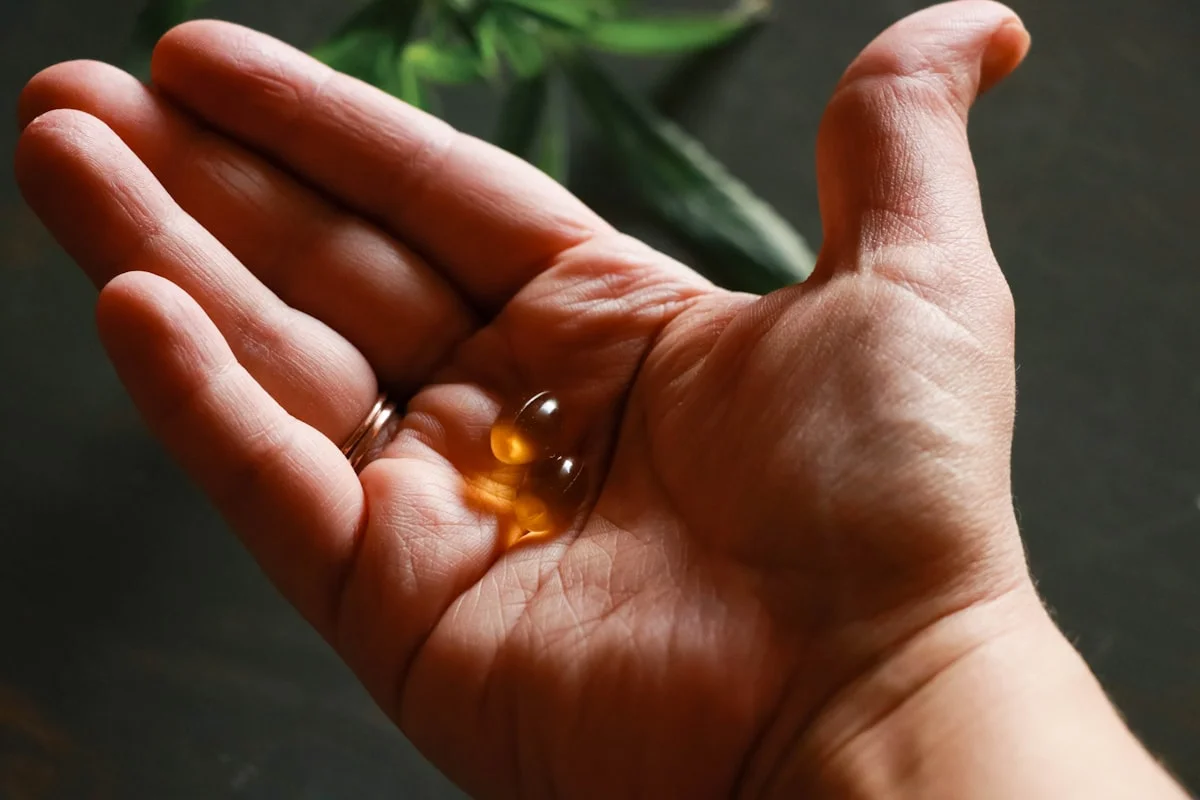“`html
Natural Supplements to Help Bipolar Medications Work More Effectively
Living with bipolar disorder can be challenging, but with the right treatment plan, many individuals find stability and improved quality of life. While prescription medications are often the cornerstone of managing bipolar disorder, some people explore natural supplements to enhance their effectiveness. These supplements may help support mood regulation, reduce side effects, or improve overall mental health. However, it’s crucial to approach supplementation carefully, as not all supplements are safe or effective for everyone. Always consult a healthcare provider before adding any new supplement to your regimen.

Understanding Bipolar Disorder and Medication
Bipolar disorder is a mental health condition characterized by extreme mood swings, including episodes of mania or hypomania and depression. Medications such as mood stabilizers, antipsychotics, and antidepressants are commonly prescribed to manage symptoms. While these medications can be highly effective, some individuals experience side effects or find that their symptoms aren’t fully controlled. This has led many to explore complementary approaches, including natural supplements, to support their treatment.
Omega-3 Fatty Acids
Omega-3 fatty acids, found in fish oil and flaxseed oil, have been studied for their potential benefits in mental health. Research suggests that omega-3s may help reduce inflammation in the brain and support neurotransmitter function, which could be beneficial for individuals with bipolar disorder. Some studies indicate that omega-3 supplementation may help reduce depressive symptoms and improve mood stability when used alongside conventional medications. However, results are mixed, and more research is needed to confirm these effects.
N-Acetylcysteine (NAC)
N-Acetylcysteine (NAC) is an antioxidant that has shown promise in supporting mental health. It may help regulate glutamate levels in the brain, which play a role in mood disorders. Some clinical trials suggest that NAC could reduce symptoms of depression and mania in people with bipolar disorder. Additionally, NAC may help mitigate oxidative stress, which has been linked to mood instability. While more research is needed, NAC is considered a potential adjunct therapy for bipolar disorder.
Magnesium
Magnesium is an essential mineral involved in numerous bodily functions, including nerve signaling and mood regulation. Some studies suggest that magnesium deficiency may be linked to mood disorders, including bipolar disorder. Supplementing with magnesium could help stabilize mood and reduce symptoms of anxiety and agitation. It may also support the effectiveness of traditional mood stabilizers like lithium. However, it’s important to monitor magnesium levels, as excessive intake can lead to side effects.
Vitamin D
Vitamin D plays a crucial role in brain health, and deficiency has been associated with mood disorders. Some research suggests that individuals with bipolar disorder may have lower levels of vitamin D compared to the general population. Supplementing with vitamin D could help improve mood and cognitive function, particularly in those with a deficiency. Since vitamin D is fat-soluble, it’s important to avoid excessive doses unless under medical supervision.
Probiotics and Gut Health
Emerging research highlights the connection between gut health and mental well-being, often referred to as the gut-brain axis. Probiotics, which support a healthy gut microbiome, may influence neurotransmitter production and inflammation levels. Some studies suggest that probiotics could help reduce mood swings and improve emotional regulation in people with bipolar disorder. While this area of research is still developing, maintaining gut health through diet and supplementation may offer additional benefits.
L-Theanine
L-Theanine, an amino acid found in green tea, is known for its calming effects. It may help reduce anxiety and promote relaxation without causing drowsiness. For individuals with bipolar disorder, L-Theanine could be useful in managing stress and improving sleep quality, which are critical for mood stability. While it’s not a replacement for medication, it may serve as a supportive supplement for overall mental well-being.
Safety Considerations When Using Supplements
While natural supplements can offer benefits, they are not without risks. Some supplements may interact with prescription medications, either reducing their effectiveness or increasing side effects. For example, St. John’s Wort, often used for depression, can interfere with many psychiatric medications and should be avoided unless approved by a healthcare provider. Always discuss any new supplement with your doctor to ensure it’s safe and appropriate for your specific situation.
Working with a Healthcare Provider
Before starting any supplement, it’s essential to consult a healthcare provider familiar with bipolar disorder. They can help determine whether a supplement is suitable, recommend proper dosages, and monitor for potential interactions. Blood tests may be necessary to check for deficiencies before supplementation. A personalized approach ensures that supplements complement rather than disrupt your treatment plan.
Conclusion
Natural supplements may offer additional support for individuals managing bipolar disorder alongside prescribed medications. Omega-3 fatty acids, NAC, magnesium, vitamin D, probiotics, and L-Theanine are among the most studied options, each with potential benefits for mood regulation and mental health. However, supplements should never replace conventional treatment without medical guidance. By working closely with a healthcare provider, individuals can explore safe and effective ways to integrate natural supplements into their bipolar management plan, improving overall well-being and stability.
“`



